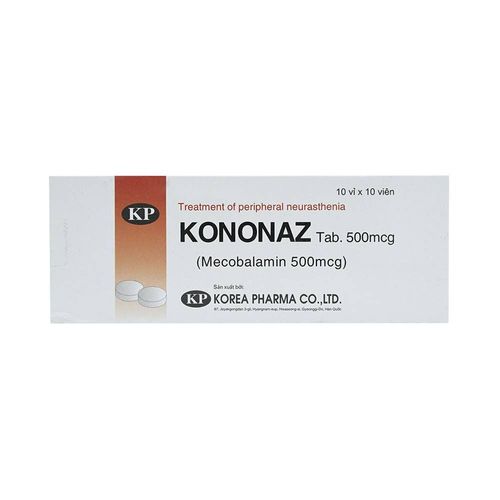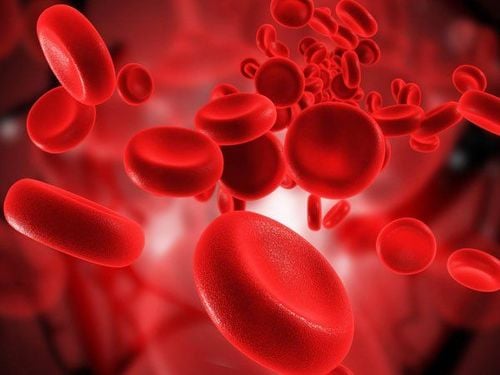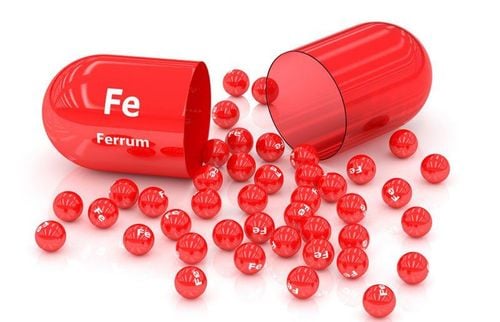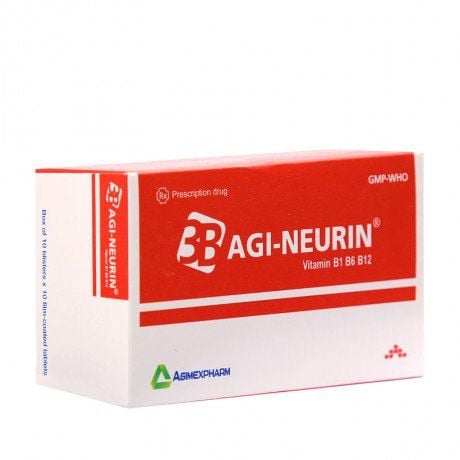This is an automatically translated article.
Hasancob drug is produced in the form of tablets, with the main ingredient being Mecobalamin. The drug is indicated for use in the prevention and treatment of vitamin B12 deficiency, anemia,...
1. Uses of the drug Hasancob
Hasancob 500mcg drug has the main ingredient is Methylcobalamin 500mcg. Mecobalamin is an endogenous coenzyme B12, which plays an important role in methyl group metabolism. This component is transported into nerve cells, helping to increase protein and nucleic acid synthesis. Besides, Mecobalamin promotes myelination (phospholipid synthesis): Promotes the synthesis of lecithin - the main component of cortical lipids. At the same time, Mecobalamin also helps to restore damaged nerve tissue; blocking the conduction of abnormal nerve impulses; Promote the maturation and division of erythrocytes, synthesize hemoglobin, help treat anemia.
Indications for the use of Hasancob:
Prevention and treatment of vitamin B12 deficiency due to many causes; Prevention and treatment of megaloblastic anemia with vitamin B12 deficiency after gastrectomy or malabsorption syndrome; Prevention and treatment of pernicious anemia and other macrocytic anemias; Prevention and treatment of peripheral neuropathy: Dizziness, tinnitus. Contraindications to the use of Hasancob:
Patients with a history of hypersensitivity to Mecobalamin or other components of the drug; People with melanoma (due to the vitamin B12 component that promotes tissue growth with a high growth rate, there is a risk of tumor progression).
2. Usage and dosage of Hasancob
Usage: Orally. The time to take the drug Hasancob does not depend on the meal. If the patient has nausea, they should eat before taking Hasancob.
Dosage: Usual adult dose of Hasancob is 1 tablet x 3 times/day or as directed by a doctor. Dosage may be adjusted according to the patient's age and symptom severity. Hasancob is not recommended for use in children.
Overdose: There have been no reports of an overdose of Hasancob. Should actively monitor the patient if the drug overdose to take timely measures. In the event of an emergency, call the emergency center immediately or take the patient to the nearest hospital.
Missed dose: If the patient forgets to take a dose of Hasancob, the drug should be taken as soon as he remembers. If it is almost time for your next dose, skip the missed dose and take your next dose as usual.
3. Side effects of the drug Hasancob
Some side effects patients may encounter when using Hasancob include:
Systemic: Anaphylactic reactions, dizziness, headache, fever, bronchospasm, oropharyngeal angioedema (rare) ; Cardiac: Arrhythmia secondary to hypokalemia on initiation of the drug (rare); Skin: Acne-like reactions, erythema, pruritus, urticaria (rare); Gastrointestinal: Nausea (rare). Usually, the side effects of Hasancob are mild and go away on their own, except for anaphylaxis. When experiencing an anaphylactic reaction, the patient needs emergency treatment with adrenaline injection, artificial respiration and oxygen breathing.
4. Be careful when using Hasancob
Some notes for patients to remember before and while using Hasancob include:
Do not use Hasancob without a definite diagnosis of the condition. Mecobalamin plasma concentration and peripheral blood cell index should be monitored at a frequency of 3-6 months/time to assess the effectiveness of treatment; Hasancob should not be used for too long if there is no effect. The drug should be used exactly as prescribed by the doctor, not used indiscriminately, because it can cause hematological reactions in patients with folate deficiency or mask symptoms of the diagnosis; Long-term, high-dose Mecobalamin should not be used in patients exposed to mercury or mercury compounds; Most cases of megaloblastic anemia are caused by a deficiency of folic acid and vitamin B12. Therefore, it is necessary to determine the cause before treatment. Folic acid should not be used to treat megaloblastic anemia if the cause has not been determined (unless in combination with vitamin B12 because otherwise it can cause nerve damage due to vitamin B12 deficiency); Mecobalamin contains cellactose 80, so it should not be used for patients with galactose intolerance, glucose - galactose malabsorption or Lapp lactase deficiency; With caution when using Hasancob in pregnant and lactating women, it is advisable to consult a doctor carefully.
5. Hasancob drug interactions
Some Hasancob drug interactions include:
Drugs such as aminosalicylic acid, neomycin, antihistamines H2 and colchicine can reduce the absorption of Mecobalamin (a component of Hasancob) from the gastrointestinal tract; The therapeutic effect of Mecobalamin may be reduced if used concomitantly with omeprazole (because omeprazole reduces gastric acid, leading to decreased absorption of mecobalamin). Therefore, if these two drugs are used in combination, vitamin B12 should be injected; Oral contraceptives will reduce the concentration of Mecobalamin in the serum; Oral chloramphenicol may reduce the effect of Mecobalamin in the treatment of anemia. When using Hasancob 500mcg, the patient should strictly follow all the instructions of the doctor. As a result, the therapeutic effect of the drug is guaranteed and significantly reduces the risk of unpredictable side effects.
Follow Vinmec International General Hospital website to get more health, nutrition and beauty information to protect the health of yourself and your loved ones in your family.
Please dial HOTLINE for more information or register for an appointment HERE. Download MyVinmec app to make appointments faster and to manage your bookings easily.













